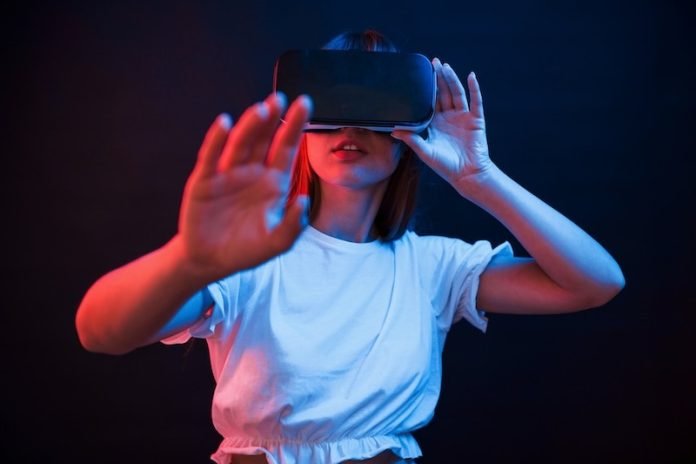
Virtual Reality (VR) has long been thought of as a technology that relies heavily on the hardware you use.
Whether it’s the headset, the screen, or the haptic gloves, most of the focus has been on the equipment itself.
However, a new study led by the University of Bath posits that the quality of your VR experience might also depend on something entirely subjective: your imagination.
The Study: Imagination’s Role in VR ‘Presence’
The research presented at the CHI Conference on Human Factors in Computing Systems aimed to assess how “imaginative suggestibility” influences a user’s experience in VR.
People with a more vivid imagination are found to be more ‘present’ in virtual environments, according to Dr. Christopher Clarke and Dr. Crescent Jicol, researchers from the Department of Computer Science at Bath.
Presence: More Than Just Being There
The concept of ‘presence’ in VR isn’t as straightforward as one might think. It’s not just about feeling like you’re ‘in’ the virtual world; it involves three different facets:
- Physical Presence: This is the feeling that the virtual environment around you is ‘real.’
- Social Presence: This pertains to the feeling that other characters you interact with in the virtual world are also ‘real.’
- Self-Presence: This is the belief or feeling that the avatar you control in the virtual world is a real extension of yourself.
According to the study, your level of imaginative suggestibility affects all three of these types of presence.
Beyond Gaming: The Larger Implications
While gaming is the most immediate application for VR technology, the concept of presence in VR has implications that stretch far beyond.
From workplace training to medical rehabilitation, VR is expected to permeate various facets of our daily lives in the coming years.
Understanding how individual psychological factors like imagination affect these experiences could be key in the future design and application of VR systems.
Implications for Developers
Traditionally, much of the research in VR has focused on hardware and technological improvements.
Yet, this study shifts the conversation towards the psychological aspects that could influence user experience in VR environments.
If software developers can tailor VR applications to match the imaginative capacities of individual users, they may be able to enhance the user experience significantly.
Conclusion: A Step Toward Holistic VR Experiences
The study is one of the first to take into account the role of imagination in VR experience, adding a whole new dimension to our understanding of the technology.
As the VR market continues to grow, this research paves the way for a more holistic approach to VR—one that considers not just the tech but also the human mind inhabiting those virtual worlds.
It’s time we thought about not just where VR can take us, but also about what we bring to those virtual worlds ourselves.
The study was published in the Proceedings of the 2023 CHI Conference on Human Factors in Computing Systems.
Follow us on Twitter for more articles about this topic.



